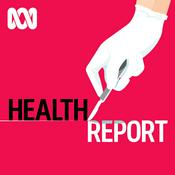OT Unplugged: Community of Practice Insights
Sarah Collison, Nikki Cousins and Alyce Svensk

Latest episode
88 episodes
- In this week’s episode, Sarah and Alyce go off-script (in the best way) and unpack the realities of practice ownership and employment in OT - from unexpected knock-backs and “rejection” moments, to the high-stakes responsibilities that come with employing staff. They explore psychosocial hazards, trauma exposure, and why psychological safety isn’t a “nice to have” - it’s a core part of running a business and supporting a workforce working in complex systems like the NDIS. The episode also dives into ethical offboarding, client handovers, and how to navigate transitions with integrity.
What you’ll hear in this episode:
Why therapists often aren’t used to “try-outs,” knock-backs, or rejection and what happens when it finally hits
What “exposure therapy” looks like for business owners (and why it can feel brutal)
The realities of PCBU responsibility and sending staff into unpredictable environments
Psychosocial hazards in OT work: trauma exposure, overload, low control, and how to respond
Ethical offboarding: handovers, notice periods, and why communication matters
The client transition dilemma: when clients want to follow the therapist, and what choice & control means in practice
The practical limits of “flexibility” in paediatric caseloads (after-school capacity is real)
A reminder: OTA members can access EAP supports
Additional links
OT Unplugged - Adelaide Friends of the Podcast event
We’re bringing the OT Unplugged Networking Night to an iconic venue in Adelaide on the evening of the 2026 ATSA expo – and you’re invited!
https://www.trybooking.com/events/landing/1543542 S8E03 - Building a Calmer OT Practice: Delegation, Hiring and Reducing Cognitive Load
12/02/2026 | 45 mins.When the work piles up, your brain does the weirdest things
There’s a particular kind of overload that shows up after a big push. You sit down, finally pause, and realise your brain hasn’t caught up with your body. You misplace simple things. You forget obvious tasks. You feel scattered, even though you’re technically “on top” of everything. For many OTs, this isn’t about poor organisation. It’s about cumulative cognitive load. Between clinical work, leadership responsibilities and life outside work, the mental tabs just keep multiplying. Sometimes the most strategic thing you can do is create breathing space – not as avoidance, but as reset.
The real cost of cognitive load in OT practice
Occupational therapy is layered work. You’re not just delivering intervention. You’re holding risk, documentation, supervision, service agreements, scheduling and often team leadership as well. Add in constant role-switching – clinician to manager to parent to administrator – and the load compounds quickly. It’s rarely one big task that tips things over. It’s the dozens of “floating” tasks that live in your head because no one else owns them. When your brain becomes the primary storage system for your business, fatigue is inevitable. This is where systems matter. Not complex, perfect systems. Simple ones that reduce how much you personally have to remember, track and finish.
Delegation only works when you hand over ownership
Many OTs delegate tasks. Fewer delegate outcomes. Partial delegation sounds like progress, but it often increases coordination. You’re still tracking the task, clarifying expectations and holding the final responsibility. The cognitive load doesn’t disappear – it just changes shape. Delegating ownership is different. Instead of assigning a step, you assign the outcome. Travel planning, inbox management or follow-ups become someone else’s responsibility, not just something they help with. Your role shifts to answering key questions and approving decisions. Often, when you try this properly, you discover something important. You don’t just need to delegate better. You may need structural support.
Hiring admin isn’t about volume. It’s about ownership
Admin roles often attract high numbers of applicants. The challenge is that volume doesn’t equal suitability, and screening takes time. The strongest candidates we seek out tend to have experience in medical reception or allied health settings, where attention to detail, privacy and workflow complexity are everyday requirements. Software knowledge helps, but mindset matters more. The bigger question, though, is what are you really hiring for? If you’re still holding bookings, follow-ups, agreements and inbox triage in your head, you don’t just need “more hours”. You need someone to take ownership of specific systems. Good admin support reduces floating tasks. That’s what protects your energy long term.
What OTs are looking for in roles right now
Money still matters, especially as salaries have shifted across the sector. But it’s rarely the only deciding factor. Flexibility remains high on the list. Not just part-time work, but genuine control over hours and the ability to shape a week around life demands. For many therapists, flexibility determines whether they stay in a role at all. Support and structure are also critical. Therapists who’ve been given “anything and everything” without clear frameworks are increasingly seeking services with defined expectations, strong internal supervision and accessible senior input. OT-led practice still carries weight when it includes real clinical leadership rather than a title alone. There’s also ongoing tension around stability. Some clinicians are reconsidering public health roles for security. Others still prefer private practice autonomy, but with better systems and clearer progression pathways.
Recruitment realities in today’s OT market
Strong candidates don’t wait. If your recruitment process is slow or unclear, you can lose someone excellent simply because another service moved faster. Screening calls can confirm practical fit early, including hours and work-from-home expectations. Clear salary bands tied to skills and support needs protect your team culture and reduce the risk of inequity. Recruiters can broaden your reach and connect you with candidates you might never find directly. The trade-off is cost, often calculated as a percentage of the first year’s package, along with specific conditions around introductions and time frames. For some practices, that investment makes sense. For others, direct approaches remain viable, especially when aligned with strong culture and reputation.
A calmer practice needs fewer floating tasks
Breathing space isn’t just about taking a week off sector noise. It’s about noticing what’s creating pressure and redesigning accordingly. Sometimes the answer is hiring. Sometimes it’s clearer delegation. Often it’s recognising that your current systems no longer match the size or complexity of your service. The goal isn’t perfect organisation. It’s building a practice where your brain isn’t the only place important work can live. If you’re refining your hiring process or building more sustainable systems in your OT practice, explore the training and resources available through Verve OT Learning. Strengthening supervision, onboarding and internal frameworks can reduce cognitive load and improve retention at the same time.
Key takeaways for OTs
• Cognitive overload often comes from floating tasks, not just workload
• Delegation reduces load only when ownership is clearly transferred
• Admin recruitment should focus on mindset and systems ownership, not applicant volume
• Many OTs prioritise flexibility, structure and genuine clinical leadership
• Recruitment processes need to move efficiently in an employee-led market
• Sustainable practice design protects both leaders and clinicians from burnout
Additional links
Free online webinar by Nikki and Alyce on how to choose your next OT role: https://payhip.com/b/3psKG
Self-paced workshop with Alyce via Verve OT Learning: https://www.verveotlearning.com.au/getting-the-admin-support- Featuring honorary member: Muriel Cummins!
The disability landscape is changing fast
Across the NDIS, early childhood and broader disability policy, reform is moving quickly and in multiple directions at once. For Occupational Therapists, these changes aren’t theoretical – they shape who can access support, how plans are built and what day-to-day practice will look like in the near future. When so much shifts at once, clarity matters. Without it, uncertainty spreads through families, providers and the workforce.
Many of the current proposals also sit within a broader cost-cutting context. That doesn’t automatically make them wrong, but it does mean we need to scrutinise what’s promised, what’s funded and what’s left unsaid.
Why advocacy is doing the heavy lifting
In a reform environment this dense, it’s unrealistic to expect individual clinicians to track every consultation, policy update and operational guideline. This is where grassroots professional advocacy becomes vital, particularly when it stays closely connected to what’s happening for participants and clinicians on the ground.
Much of the strongest work at the moment is coming from groups that operate collaboratively and draw on both clinical insight and lived experience perspectives. That approach matters because these reforms are cross-system by nature – spanning disability, health, education and state-based services – so the impacts rarely sit neatly in one portfolio.
Big promises need to match real investment
One of the most striking tensions in the current reform cycle is the contrast between optimistic messaging and limited detail about what people will actually receive. Thriving Kids is a clear example. The framing suggests an improved, modernised pathway for children and families, yet the proposed structure leans heavily towards information, advice and navigation, with therapy positioned as a targeted add-on rather than a core feature.
This is where Occupational Therapists need to keep translating policy language into real-world implications. Advice isn’t therapy. A screening pathway isn’t an intervention plan. Families facing disability-related functional challenges often need sustained, hands-on support that adapts over time. If systems are redesigned without that reality at the centre, the burden shifts quietly onto families and informal carers, and the downstream costs show up later in crisis services.
The missing piece is the NDIS access threshold
A crucial unanswered question is who will remain eligible for the NDIS as reform progresses. Without a clear threshold, it’s impossible to design complementary supports that genuinely meet need. It also makes it difficult for families and clinicians to plan, and for services to build sustainable models.
From an Occupational Therapist lens, access must remain grounded in function. Diagnostic labels alone don’t capture the support needs that sit behind participation restrictions, environmental barriers and day-to-day capacity. If the access conversation becomes overly diagnosis-led or narrowed through administrative mechanisms, many children and families with significant needs may find themselves in limbo.
Support needs assessments and the risk of undercooked change
The proposed support needs assessment framework is a foundational shift in how supports and budgets may be determined. The concern isn’t simply that the system is changing, but that it appears to be changing without enough detail to assess safety, fairness or feasibility.
At present, consultation materials offer limited information about how assessment outcomes will translate into funding decisions. There are also significant questions about tool validation and how different measures will be combined to determine budgets. When a system is used to allocate resources, accuracy and transparency aren’t optional extras – they are the safeguards.
A further concern is the implied reduction in the role of allied health evidence. Occupational Therapist reports and functional evidence are central to understanding real-world needs. Excluding that evidence except in narrow circumstances risks producing plans that look tidy on paper but fail in practice.
When informal support becomes a substitute, families burn out
Another thread running through current reform is the increased emphasis on informal supports. Informal care can be valuable, but it is not infinite. When systems start to assume that a person’s needs can be met because someone lives in the home, the result is often predictable: carer fatigue, family breakdown, reduced workforce participation and escalating stress.
Occupational Therapists regularly see the consequences when informal supports are treated as a replacement for funded assistance rather than a complement to it. Sustainability has to be designed into the model, not wished into existence.
Appeals and accountability are part of a safe system
One of the most serious flow-on risks is how these reforms may affect review and appeal pathways. If plans become driven primarily by a single assessment outcome, participants may lose the ability to challenge specific items of funding and instead be forced to contest the assessment itself.
That kind of structure can create a closed loop where the only remedy is more reassessment rather than meaningful correction. Independent oversight exists for a reason. When systems tighten decision-making power while limiting review mechanisms, the people who feel it first are participants whose supports no longer match their needs.
A safer approach is slower, clearer and genuinely testable
The sector doesn’t need a halt to progress, but it does need reform that is paced and testable. If new planning frameworks are not ready, extending timelines and strengthening consultation is a responsible response, not an obstruction.
Occupational Therapists have a practical perspective that policymakers often lack. We understand how support needs show up at home, at school, at work and in the community. That insight is essential if reforms are meant to improve outcomes rather than simply reorganise cost.
Staying steady in the middle of uncertainty
For many clinicians, the uncertainty is personal as well as professional. It affects confidence in service models, workforce stability and the ability to provide continuity of care. Staying connected to professional networks and advocacy efforts can help reduce isolation and ensure that concerns are captured while decisions are still being shaped.
This moment will likely influence disability support for years to come. The most useful contribution Occupational Therapists can make is to keep translating policy into practice realities, and to keep pushing for systems that are fair, functional and sustainable.
Key takeaways for OTs
• Reform is moving quickly across multiple systems, with limited practical detail for clinicians and families
• Thriving Kids risks prioritising advice and navigation over sustained, hands-on therapy
• Clear, functional access thresholds are essential to avoid families falling into gaps between systems
• Support needs assessments raise concerns about transparency, validation and the reduced role of allied health evidence
• Over-reliance on informal supports increases burnout risk and can drive crisis outcomes
• Restricting appeals to reassessment-only pathways weakens accountability and access to justice
• Slower, more transparent implementation with genuine testing is the safest path forward - Many OT teams are feeling the same mix right now – strong referral demand alongside shifting rules and inconsistent NDIA decision making. It’s hard to plan services, hard to train early career clinicians and hard to give participants confidence when the system keeps changing.
At the same time, participants are increasingly experiencing funding reductions rather than exits from the scheme. That shift raises the stakes for functional evidence, because strong documentation can be the difference between maintaining essential supports and losing them.
Funding cuts are changing what participants need from us
More participants are reporting plans that don’t reflect the evidence submitted, even when assessments are clinically sound. This creates frustration for families and clinicians alike. Plus, it increases the emotional load of practice.
In paediatrics, the impact can be particularly severe when a young person finishes school and ages out of paediatric pathways. Families are often told updated diagnoses are required, despite limited public access and significant private costs, leaving young people with genuine functional needs but minimal funded support.
Why the pricing consultation matters right now
Against this backdrop, the NDIA pricing consultation is one of the few formal opportunities therapy providers have to influence decisions that shape workforce sustainability and participant access. Historically, therapy provider engagement has been low, making it easier for pricing decisions to rely on limited feedback or flawed proxy data.
Previous reviews have drawn heavily on publicly listed website fees and comparisons with Medicare and private health insurance. These approaches often miss the context of session length, bundled inclusions and the administrative work required for ethical NDIS practice.
Differentiated pricing is the central issue
The main focus of the consultation is differentiated pricing, where different price limits may apply under different conditions. Factors being considered include provider registration status, participant complexity, workforce qualifications, geographic location, service quality metrics and provider size.
The biggest risk is reduced access. If lower price tiers apply to some participants or contexts, providers may avoid that work because the time and overheads don’t reduce with the rate. An hour is still an hour, regardless of the participant category.
There is also a workforce risk. If higher rates are tied to complexity, the system needs enough clinicians with the skills, experience and supervision to meet that demand. Without this, services may cherry pick or push clinicians into work they are not adequately supported to manage.
Quality and supervision are harder to define than they appear
“Quality investment” sounds straightforward until it has to be measured. Supervision is a good example. Safe practice is often built through ongoing informal support such as joint visits, quick consults and clinical reasoning discussions, not just a scheduled weekly meeting.
If differentiated pricing is linked to quality metrics, providers need to clearly articulate that meaningful quality requires robust definitions and safeguards. Otherwise, quality risks becoming a checkbox rather than a protection for participants and clinicians.
Travel remains a major gap in the consultation
Travel is barely addressed in the therapy section, despite being a significant pressure point in recent NDIS changes. For many supports, travel is not optional – it is integral to delivering effective intervention, particularly for home modifications, assistive technology trials and context-based therapy.
Any further tightening of travel rules will disproportionately affect participants outside major cities and those whose goals rely on environmental assessment. Even without a direct question, travel should be raised in the open response section or a written submission.
What the session length question is really asking
The survey asks about typical session duration and then prompts providers to allocate time across direct therapy, documentation, coordination and other tasks. This signals continued scrutiny of non face-to-face work.
Clear responses can reinforce that ethical NDIS therapy includes reporting, coordination and compliance, and that these tasks exist because the scheme itself requires robust evidence and justification.
How to keep your submission practical and manageable
If time is limited, focus on three messages: the access risk of tiered pricing, the role of non face-to-face work in safe practice and the necessity of travel for equitable outcomes. If character limits feel restrictive, a short written submission can communicate these points more clearly.
For further support on defensible reporting, NDIS functional capacity assessments and sustainable supervision for early career OTs, explore Verve OT Learning.
Key takeaways for OTs
• Participate in the pricing consultation even if you’re a sole trader, as low engagement weakens the profession’s influence
• Clearly name the access and workforce risks of differentiated pricing
• Explain why NDIS therapy includes essential non face-to-face work
• Raise travel as critical to safety, outcomes and equity
• Be specific about what “quality” needs to mean, particularly around supervision and capability
Links to access
Annual Pricing Review Provider Consultation - https://engage.ndis.gov.au/projects/annual-pricing-review-consultations
OT Australia’s NDIS Provider Consultation Survey - https://otaus.com.au/news/policy-and-advocacy-update-22-january-2026 - The “slow crawl” quite a few of us are feeling
End-of-year fatigue looks different depending on your role. For some clinicians, cancellations start rolling in and caseloads thin out. For others, it’s the opposite – back-to-back sessions, “just one more appointment”, families trying to squeeze everything in before Christmas, and calendars that don’t breathe until January.
Both experiences can feel unsettling. If your workload drops, it can trigger anxiety about income, targets or whether you should be doing more. If your workload spikes, it can feel like you’re running on fumes and resentment. Either way, your nervous system is picking up on the same theme – there’s not much margin left.
Rest isn’t indulgent, it’s part of ethical practice
There’s a line that keeps coming up in OT spaces because it’s true: you can’t support clients well if you don’t support yourself well. At the end of a year like this, “rest” isn’t just self-care language – it’s a clinical and ethical need. If you’re heading into a break, let it actually be a break. If you’re still working right up to the line, give yourself permission to lower the bar on everything that isn’t essential. The system will still be there in January, and you’ll need your capacity more than you’ll need your inbox to be perfect.
Time blocking isn’t magic, but it does create guardrails
When things feel fragile, structure can be a kindness. Time blocking doesn’t solve systemic issues, but it can stop your week from becoming one long open tab in your brain. It gives you a visual boundary: this is work time, this is admin time, this is life time.
If you’re trialling it, keep it realistic. Build in buffer blocks for the inevitable curveballs, especially at this time of year. Even one protected block that you treat as non-negotiable can reduce the “teetering on the edge” feeling.
Your admin team has carried more than people realise
If you run a practice, this is your nudge to look at your admin team with fresh eyes. Funding periods, plan dates, pricing rules, cancellations, reschedules, changing evidence expectations – admin teams have been absorbing a lot of pressure, often without the same built-in professional development days clinicians receive.
End-of-year appreciation doesn’t need to be extravagant, but it does need to be intentional. A thoughtful gesture, an early finish, a proper thank you, a team day that isn’t just more output in disguise – these things matter. They’re also part of retention, culture, and sustainability, even if they don’t show up neatly in a spreadsheet.
Next steps for your January list
If you’re mapping out a gentle return after the holidays, consider adding a short, focused “sector scan” week. One block for the NDIA pricing workplan, one block for the pricing review consultation if you plan to contribute and one block for paediatric clinicians to explore the early childhood intervention framework.
If you’d like practical support translating these updates into business decisions, service design and team training, explore the learning and resources inside Verve OT Learning, and share this article with someone who’s crawling to the finish line too.
What the NDIA’s three-year pricing workplan means for OTs
The NDIA has released a three-year pricing workplan covering its approach through 2025–2028. The key message is staged change rather than sudden shifts, with an emphasis on data gathering first, then design and targeted implementation, then refinement.
While there’s nothing you need to action immediately today, it’s worth putting on your January list. The workplan signals future directions the sector has been hearing rumours about for a while, including the possibility of outcomes-based payments and tiered pricing models. The details will matter, especially for therapy providers trying to plan staffing, pricing assumptions and service models with any confidence.
If you want to influence the conversation, the NDIA’s 2025–26 Annual Pricing Review consultation is open until 8 February 2026. If you’ve been holding back because it feels like decisions are already made, that feeling is understandable, but collective submissions still shape the evidence base the NDIA says it’s building.
A big update for paediatric early intervention
If you work in early childhood intervention, the National Best Practice Framework for Early Childhood Intervention is now available, along with practitioner resources. It sets out what high-quality, evidence-informed support looks like and is designed to guide practice, service design and implementation.
It’s a substantial body of material, so treat it as something to explore in chunks rather than trying to consume in one sitting. Even skimming it with a “what would this mean for our policies, onboarding and clinical reasoning?” lens can be useful. For teams training new grads, it’s also a strong reference point for aligning expectations around quality, family-centred practice and consistency across clinicians.
Looking ahead without adding pressure
A helpful professional intention for 2026 isn’t necessarily “do more”. Sometimes it’s “do less, with clearer boundaries”. For some OTs, that might look like protecting one day a week for deep work or recovery. For others, it might be not working evenings and weekends, even if that means saying no more often.
And if your goal is visibility – presenting, writing, building community, learning platforms like LinkedIn or Instagram – it’s worth acknowledging the effort that takes. Putting yourself out there is work. It’s also a way the OT community keeps sharing knowledge, calling out what isn’t working and backing each other through the messier seasons.
As the year closes, it’s okay if your only intention for now is to rest and reset. The work will still be there in January, and you’ll be better placed to meet it after you’ve had space to breathe.
Thank you for tuning in, listening, sharing and showing up alongside us throughout the year. Your support, feedback and honesty are what make these conversations matter. We’re signing off for a well-earned break and look forward to being back with you in 2026.
More Health & Wellness podcasts
Trending Health & Wellness podcasts
About OT Unplugged: Community of Practice Insights
OT Unplugged is a space for you to connect, reflect and stay up to date on OT practice and the evolving world of the NDIS.
Podcast websiteListen to OT Unplugged: Community of Practice Insights, Health Report and many other podcasts from around the world with the radio.net app

Get the free radio.net app
- Stations and podcasts to bookmark
- Stream via Wi-Fi or Bluetooth
- Supports Carplay & Android Auto
- Many other app features
Get the free radio.net app
- Stations and podcasts to bookmark
- Stream via Wi-Fi or Bluetooth
- Supports Carplay & Android Auto
- Many other app features


OT Unplugged: Community of Practice Insights
Scan code,
download the app,
start listening.
download the app,
start listening.
































